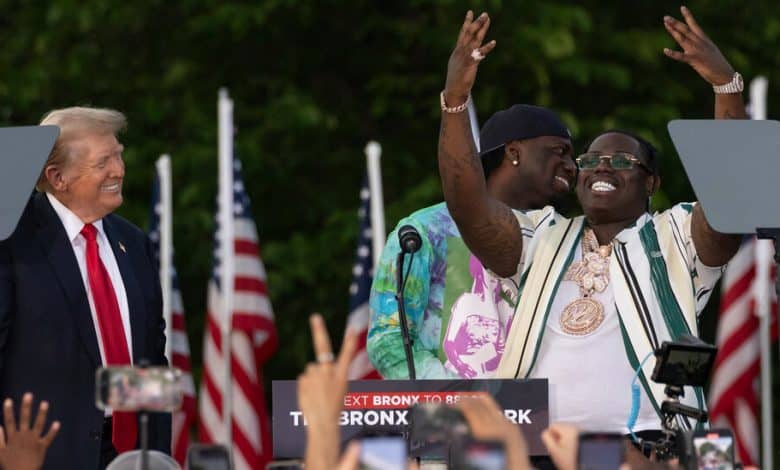How a Group of Rappers Became Trump Evangelists

One oddity of Donald Trump’s Bronx rally last week was when the former president invited two rappers — Michael Williams, who performs as Sheff G, and Tegan Chambers, who performs as Sleepy Hallow — to the stage.
Both rappers are facing felony charges. And that fact actually makes their appearance at the rally make sense — it tracks with Trump’s seemingly transactional relationship with several hip-hop artists, a history of which I have no doubt Sheff G and Sleepy Hallow are aware.
For instance, just days before the 2020 election, the rapper Lil Wayne, who was weeks away from pleading guilty to a federal gun charge that could have resulted in significant prison time, met with Trump in Florida. Afterward, Wayne posted a picture of the two of them together flashing thumbs-ups and reading, “Besides what he’s done so far with criminal reform, the Platinum Plan is going to give the community real ownership.”
The Platinum Plan was Trump’s Black economic empowerment proposal that was announced toward the end of that year’s presidential race. In what certainly looked a lot like a quid pro quo, Trump pardoned Wayne as he was leaving office.
Trump has had an interesting relationship with hip-hop. For decades, particularly during the “get money” period of the genre, rappers would often name check Trump in their songs.
As the journalist and radio host Farai Chideya says in the new Hulu documentary “Hip-Hop and the White House”: “There are definitely aspects of Trump’s personality and actions that call to the baser nature of hip-hop.” She hypothesizes that at least in the past, the misogynistic cohort within hip-hop may have looked at Trump’s unrestrained sexism and saw it as aspirational.
